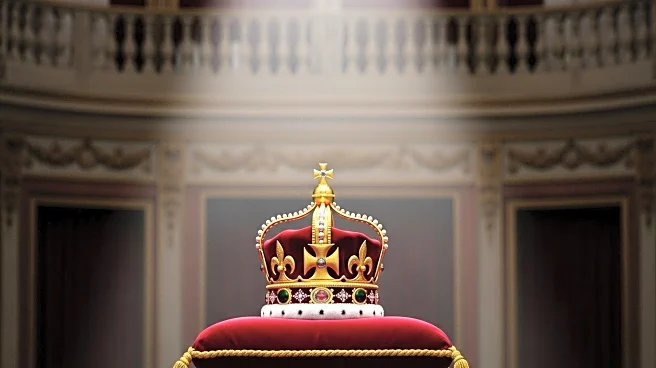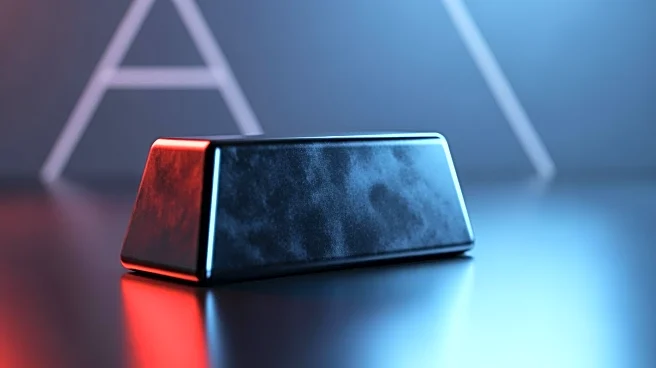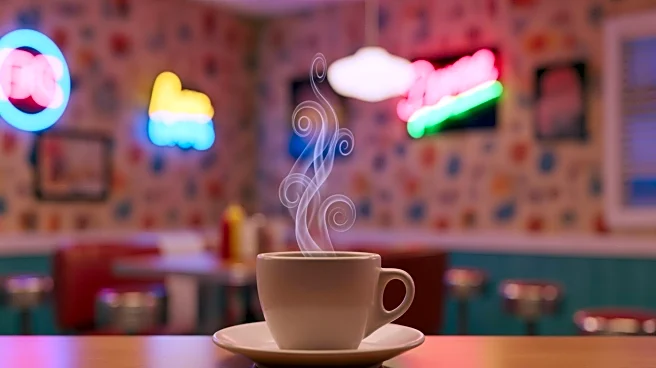What is the story about?
What's Happening?
Grand Duke Henri of Luxembourg has officially abdicated the throne, passing the leadership to his son, Guillaume, in a historic ceremony held at the Grand Ducal Palace. The event, attended by world leaders and European royals, marked the end of Henri's 25-year reign. Guillaume, who is 43 years old, took an oath to uphold Luxembourg's constitution in front of the Chamber of Deputies. The ceremony was followed by a gala dinner in Luxembourg City, with notable attendees including German President Frank-Walter Steinmeier and French President Emmanuel Macron. Despite the change in leadership, the role of the Grand Duke remains largely ceremonial, serving as a symbolic head of state and international representative for Luxembourg.
Why It's Important?
The abdication of Grand Duke Henri and the ascension of Guillaume is significant for Luxembourg, a key financial hub in Europe and a founding member of NATO. The transition comes at a time when Luxembourg faces various challenges, including climate change, geopolitical tensions, and economic upheavals. As the world's last remaining grand duchy, Luxembourg's leadership change is a rare event, highlighting the stability and continuity of its monarchy. The new Grand Duke Guillaume is expected to continue representing Luxembourg's interests on the international stage, maintaining its role within the European Union and other global institutions.
What's Next?
As Grand Duke Guillaume assumes his new role, he will likely focus on addressing the challenges outlined by his father, including climate change and economic issues. The transition may also bring subtle shifts in Luxembourg's diplomatic and economic strategies, as Guillaume brings his own experiences and perspectives to the position. Observers will be watching how Guillaume navigates these challenges and continues Luxembourg's legacy as a stable and influential European state.
Beyond the Headlines
The abdication of Grand Duke Henri and the rise of Guillaume underscore the evolving nature of European monarchies, where ceremonial roles are increasingly intertwined with modern political and economic realities. This transition may also influence other European monarchies considering similar changes, as seen with Denmark's recent abdication. The event highlights the enduring relevance of royal families in Europe, even as their roles adapt to contemporary challenges.















